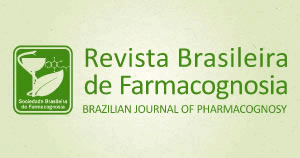The effect of a Brazilian algae extract and also a mixture of two secodolastane diterpenes (linearol/isolinearol) that were isolated from the marine brown alga Canistrocarpus cervicornis were evaluated against biological activities of Lachesis muta snake venom. In vitro assays showed that the crude extract and the diterpenes were able to inhibit the clotting and proteolytic activity induced by L. muta crude venom, but not the hemolytic activity. However, only the diterpenes inhibited the hemolysis caused by a purified phospholipase A2 previously isolated from L. muta venom, denoted LM-PLA2-I. Interestingly, the crude algal extract and the diterpenes were able to protect mice from hemorrhage induced by L. muta venom. Thus, we may conclude that marine algae are rich and powerful sources of molecules that may be used against L. muta accidents in order to improve treatment of envenomation by this snake.
Canistrocarpus cervicornis; seaweed; diterpenes; Lachesis muta; snake venom; antiophidian




